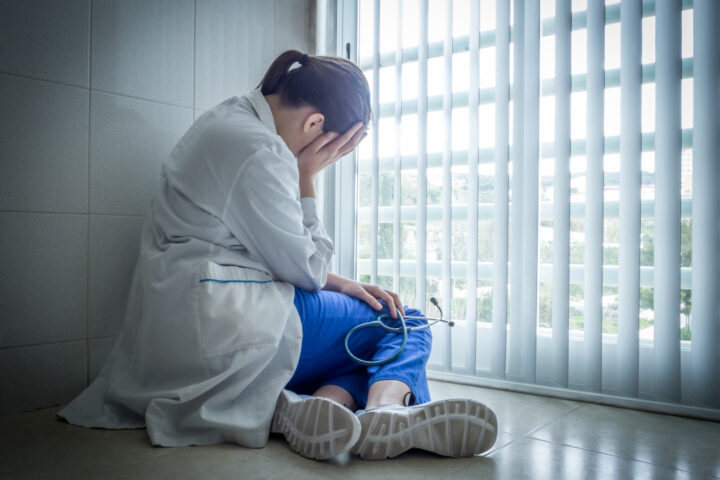It came as a no surprise. The never ending finger pointing of who or what did “jacked” up the high cost of health care in the US suddenly found an ominous target. Health care providers particularly physicians, may have been partly responsible for the high cost of health care in the US. One such article that suggest this was written by Atul Gawande and posted on New Yorker Annals of Medicine: The Cost Conundrum.
Atul wrote his “musings’ on two health care systems (Mc Allen in Texas and Mayo Clinic) that exist in the US which showed a stark contrastsin their health care cost and outcomes. Health care authorities wonder why such an average income city like McAllen, wield one of the highest health care costs (second only to Chicago, considered to be a high income, high cost of living area) yet their cities health care outcomes are no better than other cities in the US utilizing a lower cost of health care. Surprisingly, a well known top notch health care institution like the Mayo Clinic deliver a better than average health care outcomes with health care utilization cost that is lower than most health institutions in the US!
So why the physicians are partly the reasons for this? The writer ponted some not so obvious reasons. Not a few physicians order” “unnecessary” diagnostics to increase diagnostic accuracy and partly to protect themselves from malpractice suits or litigation. Another reason is rising unnecessary clinic visits, specialist referrals, entrepreneurial marketing endeavors that walk on thin borders of ethical compromise, physician s education or training and so many things. The fee based business- like private practice also creates pressure on objective decision making of physicians, propelling a market physician practice. There were so many things pointed out and none has yet set a clear local and national health policy to clear this out.
This article became a must read for Obama and his White House staff.
I think the Philippines can also learn from these insights. While we preoccupy much of our debates over two spectrum of health care delivery (poor vs rich ) present in the cities, we do not exactly know the vast number of “in between” that reside in the rural areas.The Mc Allen phenomena is not unique to Texas. While those in the tertiary centers of health (e.g. Manila, Cebu, Davao) presumably get better access to quality health care system, the fee based system we have limits this quality health care to those who can afford it. Of greater concern are those poor Filipinos in the rural areas, where not only that they don’t have access to better quality healthcare, they’ll have to shell out more than their counterparts in the centers to obtain same quality health care. Why is that? I don’t have answers to this. Our health insurance system? It only magnified a few these apparent disparity.
One example I can point out is the coverage Philhealth (PHIC) for illnessess claimed by its insured constituents. Assuming the same illness, the same level of care is provided for by the health care professional or instituion, reimbursements is still dependent on the “level of hospital” (primary vs. secondary vs. tertiary) where the patient was admitted to. Since it is rare to see tertiaries in rural areas, claim coverage is lesser (~30-40% for some, although practically no one knew except PHIC). Ergo, the patient pays more because less is covered by his insurance. It may sound superflous but yeah, will an appendectomy performed really differ between a secondary or tertiary center? Bottomline is not who pays for the patient. The patient pays more for the same level of care provided. I am not yet talking of why the health care provider should be paid less..
The recent drives for an evidence based medicine and the attempts by expert panels to reduce diagnostics procedures to meaningful ones is laudable. The only two great limitations to these are the source of the evidence, which is mostly foreign and the availability of such diagnostic or treatment procedures in the rural areas. Thus in the rural areas, the best evidence often translates to what is available. The GP has no choice but to revert back to his personal expertise which is most often borne out on the availability of facilities and logistics. They dont have any choice.
The cheaper medicine law is in place after so much hoopla but so far, the effect seem anemic. The Cheaper Medicine law should have lessen the grip of pharmaceuticals on drug prices, but that doesn’t seem to be the case yet. Or will it ever be?
Yes, the fee based health care system suck, but that’s what our system ‘revert” to with a government does not (for lack of balls perhaps) prioritize healthcare subsidies? We doctors could probably reduce our health care utilization cost if we wanted to. We were trained to do just that in training. We were taught that our patients come first and our physician business last. But while such patient-doctor relationship may seem so simplistic and altruistic, it is not bipartisan. Pressures created by external factors on this relationship surely influence the dirsection to which this relationship is consumated. The rising health care cost is just one of them.
I’d say Filipinos will have to move heaven and earth to adopt a health care system akin to UK, porportedly the best in the world. Resitance to such change is not only unique to the pharma industries but to some physicians also. Even if it takes time for you to be seen/operated on by a specialist in UK/US, at least you get to be seen. Here in the Philippines, the chances of you getting seen/ operated by a specialist is largely proportional to your paying capacity.






